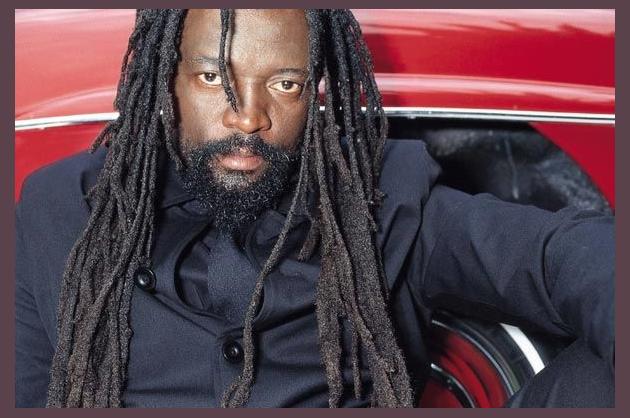 Lucky Dube
Lucky Dube
Lucky Dube: A Reggae Icon Remembered
Lucky Dube, the legendary South African reggae musician, left an indelible mark on the music world with his soulful lyrics and infectious rhythms. Born in Ermelo, South Africa, in 1964, Dube's life was a testament to his unwavering commitment to social justice and humanitarianism.
Musical Journey and Acclaim
Dube's musical journey began in the early 1980s, when he joined a local choir. It was there that he discovered his passion for singing and songwriting. Inspired by the message of peace and unity espoused by reggae legends like Bob Marley, Dube ventured into the reggae genre.
In 1984, Dube released his debut album, "Rastas Never Die." However, it was his 1987 album, "Think About the Children," that catapulted him to international fame. The album's lead single, "Remember Me," became a global anthem for anti-apartheid and human rights activism.
Dube's music resonated deeply with audiences worldwide, earning him numerous awards and accolades. He was inducted into the South African Music Hall of Fame and received the prestigious Grammy Award for Best Reggae Album in 1996.
Social Impact and Activism
Beyond his musical success, Lucky Dube was a vocal advocate for social justice and equality. His lyrics often addressed issues of poverty, racism, and apartheid. He used his platform to raise awareness about the plight of the marginalized and to promote peace and unity.
Dube's activism extended beyond his music. He established the Lucky Dube Foundation, a non-profit organization dedicated to providing education, healthcare, and community development programs to underprivileged communities.
Members and Collaborations
Lucky Dube's band, often known as the Slaves, consisted of talented musicians who played an instrumental role in his success. Notable members included Isaac Mtshali (guitar), Richard Nkosi (bass), and Oscar Sikwane (drums).
Throughout his career, Dube collaborated with other renowned artists, such as Jimmy Cliff, John Legend, and Shaggy. These collaborations further expanded his reach and introduced his music to new audiences.
Challenges and Controversies
Lucky Dube's life was not without its challenges. He faced criticism from some critics who accused him of promoting marijuana use in his songs. Additionally, his outspoken views on social issues drew both praise and condemnation.
In 2007, tragedy struck when Dube was murdered during a carjacking in Johannesburg. His untimely death sent shockwaves through the music industry and beyond.
Legacy and Influence
Lucky Dube's legacy continues to inspire generations of musicians and activists alike. His message of unity, justice, and love remains as relevant today as it was during his lifetime. His music continues to be cherished by fans worldwide, ensuring that his memory will live on forever.
Lucky Dube, the legendary South African reggae musician, left an indelible mark on the music world with his soulful lyrics and infectious rhythms. Born in Ermelo, South Africa, in 1964, Dube's life was a testament to his unwavering commitment to social justice and humanitarianism.
Musical Journey and Acclaim
Dube's musical journey began in the early 1980s, when he joined a local choir. It was there that he discovered his passion for singing and songwriting. Inspired by the message of peace and unity espoused by reggae legends like Bob Marley, Dube ventured into the reggae genre.
In 1984, Dube released his debut album, "Rastas Never Die." However, it was his 1987 album, "Think About the Children," that catapulted him to international fame. The album's lead single, "Remember Me," became a global anthem for anti-apartheid and human rights activism.
Dube's music resonated deeply with audiences worldwide, earning him numerous awards and accolades. He was inducted into the South African Music Hall of Fame and received the prestigious Grammy Award for Best Reggae Album in 1996.
Social Impact and Activism
Beyond his musical success, Lucky Dube was a vocal advocate for social justice and equality. His lyrics often addressed issues of poverty, racism, and apartheid. He used his platform to raise awareness about the plight of the marginalized and to promote peace and unity.
Dube's activism extended beyond his music. He established the Lucky Dube Foundation, a non-profit organization dedicated to providing education, healthcare, and community development programs to underprivileged communities.
Members and Collaborations
Lucky Dube's band, often known as the Slaves, consisted of talented musicians who played an instrumental role in his success. Notable members included Isaac Mtshali (guitar), Richard Nkosi (bass), and Oscar Sikwane (drums).
Throughout his career, Dube collaborated with other renowned artists, such as Jimmy Cliff, John Legend, and Shaggy. These collaborations further expanded his reach and introduced his music to new audiences.
Challenges and Controversies
Lucky Dube's life was not without its challenges. He faced criticism from some critics who accused him of promoting marijuana use in his songs. Additionally, his outspoken views on social issues drew both praise and condemnation.
In 2007, tragedy struck when Dube was murdered during a carjacking in Johannesburg. His untimely death sent shockwaves through the music industry and beyond.
Legacy and Influence
Lucky Dube's legacy continues to inspire generations of musicians and activists alike. His message of unity, justice, and love remains as relevant today as it was during his lifetime. His music continues to be cherished by fans worldwide, ensuring that his memory will live on forever.